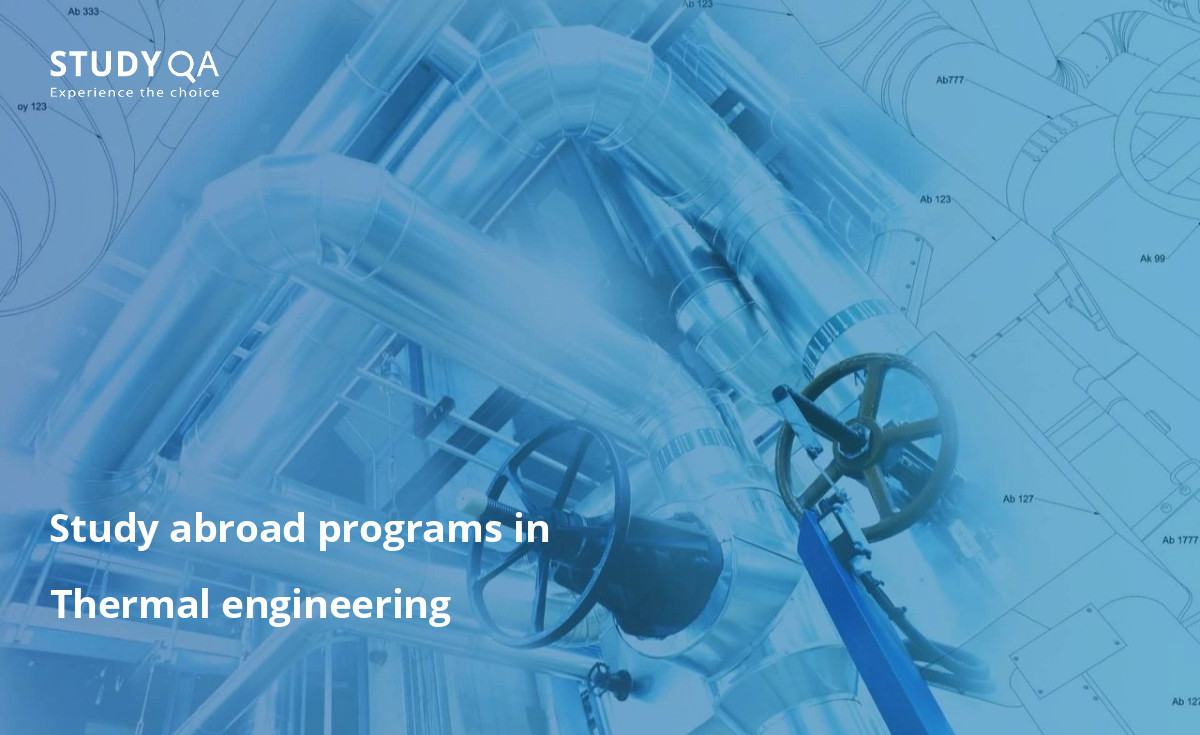A Thermal engineer is a specialist who uses the knowledge of thermodynamics to design and build systems that transmit heat or energy. This requires i...
A Thermal engineer is a specialist who uses the knowledge of thermodynamics to design and build systems that transmit heat or energy. This requires in-depth knowledge of hydrodynamics, since liquids and gases are usually the media through which heat is transmitted.

Through this exciting program, students will gain scientific and technological knowledge as well as core experience to understand and contribute to innovative research and development processes in the field of energy.
There are a number of other specialized fields in the field of thermal engineering. Engineers can work with very small systems, for example, in electronics, or with very large ones, for example, in buildings or vehicles. In addition, an engineer must be able to design and build systems that transfer heat to or from other types of energy. One of the responsibilities of a heating engineer is the design of heating and cooling systems.
Program features
During your engineering degree, you will study a number of topics: renewable energy sources, improving heat transfer, industrial thermal operations, thermal energy systems, computational fluid dynamics. Thermal engineering considers the process of converting thermal energy into chemical, mechanical or electrical energy. As a specialist in thermal engineering, you will have knowledge in the field of thermodynamics, fluid mechanics and heat transfer. Your career path includes a wide range of options, as many industries require the knowledge of a thermal engineer.
Companies operating in a wide variety of industries may be interested in hiring heat engineers. After training, you will be able to work in areas related to the automotive industry, computer design, utilities and other industrial areas. To start a career as a thermal engineer, a bachelor's degree in mechanical engineering or a related field is usually required to remain a competitive option for employers. Focus on developing skills in a specific industry during your training to gain the necessary skills when applying for a resume for a position of interest.
Candidates entering the Master's program must have a degree confirming at least 4 years of higher education in one of the following fields: applied physics, mechanical engineering, chemical engineering. Despite the fact that the Master's degree is research-oriented, it offers graduates a variety of career options and provides them with the opportunity to perform, coordinate or manage basic and applied tasks.
Career
After completing your studies, you will be able to work at universities, technological and research centers, companies that produce thermal systems and equipment for air conditioning, ventilation and cooling, heat exchangers and batteries, low-temperature and medium-temperature solar energy systems, boilers, turbines and renewable energy sources: high-temperature solar concentrators, wind turbines and shovels, buoy structures and so on.
The best engineering schools in 2023 to study thermal engineering: University of Stuttgart (https://studyqa.com/uni/university-of-stuttgart), Stanford University, University of California at Berkeley, Carnegie Mellon University, Purdue University — West Lafayette, University of Texas — Austin (Cockrell), California Institute of Technology, Georgia Institute of Technology, University of Michigan — Ann Arbor.

